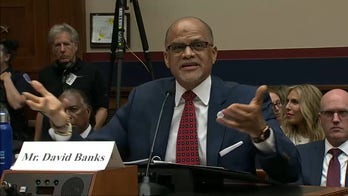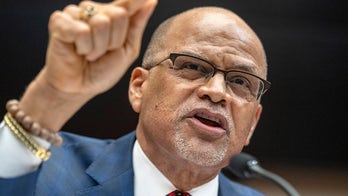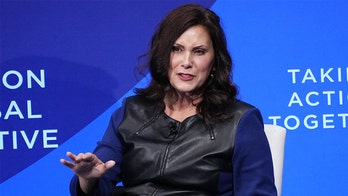What happens when American military action has neither public support nor congressional approval? Looks like we're getting ready to find out.
Americans did not much like President Obama's 2011 decision to intervene in the Libyan civil war, and the looming entry of American forces in Syria's conflict is shaping up to be even less popular. The consequences, especially with a president famously unwilling to put his own political clout on the line for national security policies, could be serious.
When Obama committed American might to the effort to depose Libyan despot Muammar Qaddafi, the plan was supported by a slim plurality of Americans. It was a far cry for the big majorities that had backed most prior U.S. military action, like the 76 percent who backed the 2003 invasion of Iraq, but 47 percent backing Libya strikes was at least something.
The Libyan intervention quickly lost popular support as American-backed Islamist rebels failed to knock out the Qaddafi regime. But that wasn't entirely unlike other American interventions, like Vietnam and Iraq, that started with popular support and saw it winnow over time.
So what about Syria?
A Reuters poll last week found popular support for entering the Syrian war was 9 percent. When Obama orders what is now seen as an inevitable attack on government forces there, he will be initiating what will likely be the first-ever military campaign of the modern era launched without popular support.
That's tricky enough, but doing so when notions of congressional authorization are now considered passé and when Syria and its allies are promising painful reprisals, Obama's creep toward war looks even more perilous. American air strikes could be part of setting off a larger conflagration in the region. How willing would Americans be to support a larger war effort that began under such conditions? What if peacekeepers are needed?
Republicans in support of an attack are quick to point out that Obama hasn't done enough to sell the war and argue for American intervention. And there's something to that. Obama's preferred political posture of being dragged into conflicts rather than leading the charge, as with his double surges in Afghanistan and Libya bombardments, doesn't help Americans to "rally 'round the flag."
But, c'mon. Nine percent? Obama could have been on a "Bomb Syria" bus tour last week rather than a campaign for increased domestic spending and still failed to nudge that number into positive territory.
Americans liked Obama's foreign policy better when they mistakenly thought he was a peacenik. War-weary and frustrated after the years spent struggling in Iraq and Afghanistan, Americans welcomed Obama's rejection of the Bush Doctrine for the Muslim World. They liked the sound of "nation building here at home." Less guns, more butter and Usama bin Laden in a body bag. Winner.
But as they have learned more about the Obama Doctrine for the region, Americans have recoiled. The president's plan for encouraging and empowering Islamist factions in the Middle East in a bid to midwife Western-style pluralism has not been what Americans are looking for.
Islamist militants killing Americans with impunity in Benghazi, Libya and the sea-sick cycle of regime change in Egypt suggest that Obama's plan for transitional Islamism is not much working. It is far from unreasonable for Americans to conclude that they are not interested in seeing Obama again intervene on the side of the Islamists in the hope that this time will work out better.
Given that Syria has weapons of mass destruction, formidable allies in Iran and Russia and is near enough to bomb Jerusalem, the idea of another Libya-style intervention looks unhappier still.
Voters are learning that liberal interventionists are interventionists too, and it's a lesson they're not very happy about.
The implicit promise of the post-Vietnam understanding of presidential military authority largely unchecked by Congress is that the wars will be popularly supported. What happens in the absence of such support will set a new course for foreign policy and the use of force.
Chris Stirewalt is digital politics editor for Fox News. Want his daily political newsletter, FOX News First in your inbox? Sign up here. To catch Chris live online daily at 11:30 a.m. ET, click here.




